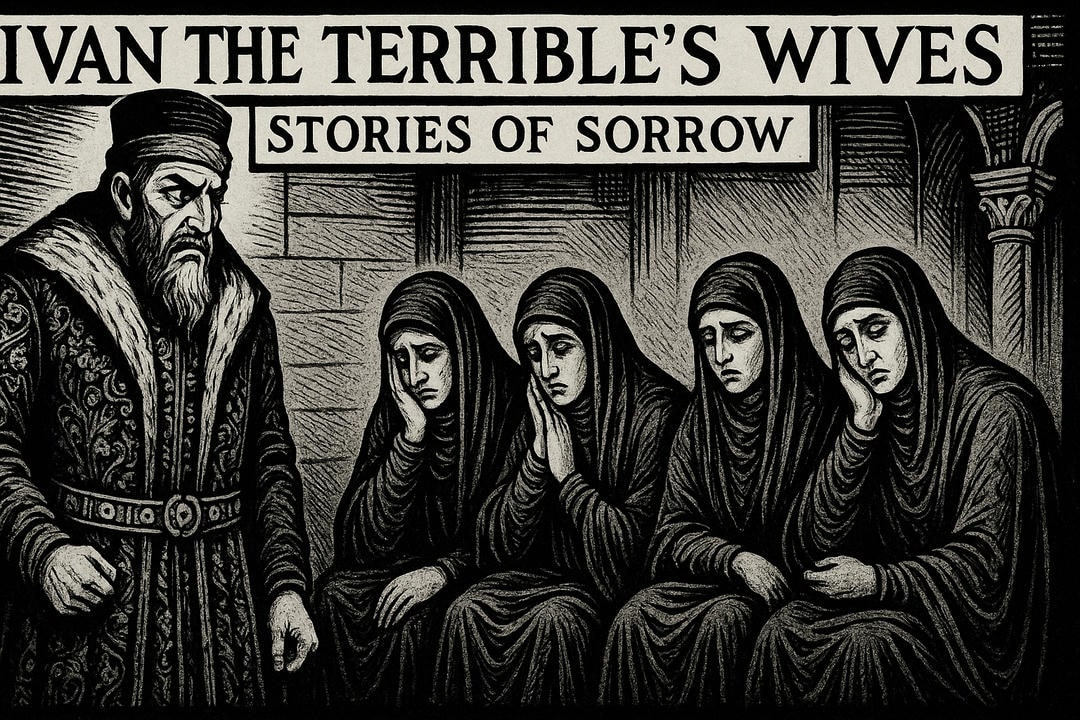Stalin’s name transformation from Ioseb Dzhugashvili to the pseudonym meaning “steel” reveals much about his persona and political strategy. This choice reflects not only his personal ambition but also his alignment with revolutionary ideals. The implications of this name are debated among scholars, highlighting its role in shaping perceptions of power and authority. Understanding this transformation invites a closer examination of how names influence historical narratives and legacies. This transformation underscores the significance of leadership in revolutionary contexts.
Introduction

As Joseph Stalin emerged from his early years in Georgia to become a central figure in Soviet history, the evolution of his name provides a fascinating lens through which to examine his identity and political transformation. The adoption of “Stalin,” meaning “steel,” encapsulated revolutionary symbolism and reflected a shift in cultural significance. This name evolution signified not only personal ambition but also a calculated alignment with the ideals of strength and resilience inherent in the revolutionary movement.
Historical Implications
Understanding the historical implications of Stalin’s identity transformation reveals the complexities of his leadership and the broader socio-political landscape of the Soviet Union during his rise. His life and significance are marked by a series of transformative events that shaped not only his personal trajectory but also the course of Soviet history. Rising from humble beginnings in Georgia, he embraced revolutionary tactics to ascend to power, ultimately embodying Stalin’s ideology of centralized control and state socialism.
Symbolism of Stalin’s Name
His name, a symbol of strength, reflects the political symbolism that resonated during his rule. In the broader historical context, Stalin’s leadership facilitated rapid industrialization and authoritarian governance, leaving a complex legacy that continues to influence contemporary discussions on totalitarianism and the interplay between individual identity and political power.
Importance of Pseudonyms
Pseudonyms play an important role in revolutionary circles, serving not only as tools for anonymity but also as symbols of ideological commitment and solidarity. Within the historical context of political upheaval, these names facilitate the evolution of revolutionary identity, allowing individuals to adopt personas that resonate with their cause. The significance of pseudonyms lies in their cultural symbolism, reflecting shared values and aspirations among revolutionaries. These names often transcend personal identity, embodying collective struggles and aspirations for freedom. Consequently, the strategic use of pseudonyms becomes a crucial mechanism for both personal protection and the promotion of revolutionary ideals.
Early Life and Revolutionary Beginnings
Emerging from a complex cultural and political landscape, the early life of Ioseb Dzhugashvili laid the groundwork for his later transformation into Joseph Stalin.
Rooted in a strong Georgian identity, Dzhugashvili was influenced by the revolutionary spirit that permeated his community. His upbringing in a turbulent environment fostered a sense of resilience and aspiration, shaping his political ideologies.
These early influences were pivotal in his personal transformation, driving him toward revolutionary activism. The significance of his name, evolving from Ioseb to Stalin, reflected not only personal ambition but a deeper alignment with revolutionary ideals that would define his future.
Stalin’s formative years in Georgia played a crucial role in shaping his identity and ideological development. Immersed in Georgian culture, he absorbed its rich traditions and symbolism, which influenced his later revolutionary identity. His education at the Tiflis Theological Seminary introduced him to revolutionary thought, albeit indirectly, as the institution’s rigid structure contrasted with his emerging political beliefs. The seminary’s environment fostered critical thinking and rebellion against authority, impacting Stalin’s worldview.
This blend of cultural heritage and seminary influence laid the groundwork for his future endeavors, forging a complex character that would navigate the turbulent political landscape of early 20th-century Russia.
Revolutionary Ideology and Activism

As revolutionary ideology began to permeate circles in Russia, many activists, including Joseph Stalin, found themselves drawn to its principles of social upheaval. Engaging in underground networks, they developed strategies that challenged the existing political order. Clandestine meetings became essential for discussing tactics and fostering solidarity among disparate factions.
However, ideological conflicts frequently arose, as various interpretations of revolutionary thought clashed, prompting debates over the path to revolution. Stalin’s involvement in these underground activities not only shaped his political identity but also laid the groundwork for his future leadership within the Bolshevik movement.
Tradition of Revolutionary Nicknames
The tradition of revolutionary nicknames has played a significant role in the history of political movements, serving as both a tool for identity formation and a means of evasion from state authorities. These pseudonyms, rich in significance, reflect individual revolutionary identities while embodying broader cultural influences and historical contexts. They often carry political symbolism, transforming personal names into emblems of resistance and unity.
For many revolutionaries, such names were not mere aliases but represented a collective struggle against oppression. This practice fostered solidarity among activists and created a shared narrative, enhancing the impact of revolutionary movements throughout history.
Common Practices Among Revolutionaries
Throughout the history of revolutionary movements, the use of pseudonyms has been a prevalent practice among activists, reflecting their commitment to anonymity and ideological principles. The significance of pseudonyms lies in their ability to forge a revolutionary identity while evading oppressive regimes. In revolutionary traditions, these aliases often serve as political symbolism, representing a collective struggle against tyranny.
The historical context reveals that such practices not only protected individuals but also enhanced the mystique of revolutionary figures. By adopting pseudonyms, revolutionaries could embody ideals of strength, resilience, and unity, thereby reinforcing their commitment to the cause and its transformative vision for society.
Stalin and Symbolic Pseudonyms
Adopting the name “Koba” marked another significant phase in Joseph Stalin’s identity formation, with roots tracing back to a character in Georgian folklore. Koba’s significance lay in its embodiment of revolutionary ideals, symbolizing strength and resistance against oppression. This name resonated deeply within the cultural landscape of Georgia, enhancing Stalin’s image as a champion of the people.
Koba, a pivotal figure in Georgian folklore, serves as a symbol of strength and resistance against oppression within Georgian culture. The Koba folklore embodies heroism, portraying the character as a champion of the marginalized, thereby forging a powerful identity among the people. Koba’s symbolism extends beyond mere tales; it reflects a collective aspiration for freedom and resilience. As a manifestation of resistance, these stories inspire individuals to confront tyranny and injustice. The enduring legacy of Koba reinforces cultural unity, reminding Georgians of their historical struggle and the importance of standing firm against oppression in pursuit of liberty.
Transition to Stalin
The shift from the folklore hero Koba to the historical figure Joseph Stalin illustrates a profound transformation in Georgian identity and political landscape. This change marked a significant political evolution as Stalin appropriated Koba’s revolutionary symbolism to consolidate power. The adoption of a name associated with strength and resilience reflected an identity transformation, aligning with the Soviet regime’s ideological tenets. Koba’s cultural significance diminished, replaced by Stalin’s authoritative legacy, which reshaped perceptions of leadership within the region. Ultimately, this name change embodied the intertwining of personal ambition and broader socio-political currents, redefining the narrative of Georgian nationalism in the Soviet context.
Adoption of ‘Stalin’
As Joseph Dzhugashvili navigated the tumultuous landscape of early 20th-century Russia, the adoption of the name “Stalin” marked a strategic pivot in his political identity. This pseudonym evolution not only encapsulated his aspirations but also emphasized the weight of name significance in shaping a leader’s image. “Stalin,” meaning “steel,” conveyed strength and resilience, aligning perfectly with his revolutionary heritage. The cultural implications of this name resonated deeply within Soviet society, reinforcing his authority and legitimacy. Ultimately, this transformation represented a deliberate shift that solidified his emerging political identity amid the complexities of revolutionary fervor.
Timeline: From Koba to Stalin
While traversing the revolutionary landscape of early 20th-century Russia, Joseph Dzhugashvili, known by his earlier alias “Koba,” began a pivotal transformation in 1913 that would ultimately lead to his adoption of the name “Stalin.” This evolution was not merely a change of nomenclature but a strategic rebranding that reflected his growing political ambitions and the need to forge a distinct identity within the Bolshevik movement. Koba’s significance lay in his revolutionary identity, which was shaped by cultural influences and political symbolism, marking his shift toward a more formidable persona that aligned with the aspirations and values of the burgeoning revolutionary cause.
Theories About Stalin’s Name
Stalin’s adoption of his pseudonym marked a significant turning point in his personal and political identity, prompting discussions about its origins that reflect both linguistic and cultural dimensions. Theories surrounding the name’s evolution suggest a blend of linguistic adaptation and cultural significance, highlighting its political symbolism. Scholars propose that “Stalin” embodies his revolutionary identity, representing strength and resilience. Some argue that the pseudonym drew inspiration from influential literary figures or historical contexts, while others emphasize its role in unifying disparate revolutionary factions under a common identity. Ultimately, these theories illuminate the complexities inherent in Stalin’s transformation and the legacy of his chosen name.
Connection to Russian Word Stal
The connection between Stalin’s chosen name and the Russian word “stal,” meaning “steel,” underscores the carefully constructed image he sought to project as a leader. This steel symbolism reinforced Stalin’s identity as a figure of strength and resilience, aligning him with revolutionary imagery that evoked industrial progress and national pride. The evolution of his name reflects broader cultural significance, as it transformed from a Georgian background to a symbol of Soviet authority.
Literary Influences
Literary influences played a significant role in shaping Joseph Stalin’s identity and the adoption of his pseudonym. Central to this transformation was Evgeniy Stalinsky, whose works resonated with Stalin, reflecting revolutionary ideals and aspirations. Stalinsky’s impact extended beyond mere admiration; it highlighted the significance of the revolutionary nickname “Stalin” as a cultural symbol embodying strength and resilience. Analyzing this cultural symbolism reveals how Stalin’s literary influences facilitated his political identity evolution, aligning his persona with revolutionary narratives. These elements intertwined to forge a leader whose name would evoke both admiration and fear, illustrating the profound interplay between literature and politics in his life.
Misinterpretations of Dzhugashvili’s Surname
Although often overshadowed by his adopted name, the original surname Dzhugashvili carries significant cultural and historical implications that have led to various misinterpretations. Many fail to appreciate the depth of Georgian identity embedded in his surname, which reflects the rich mosaic of his heritage. Cultural misinterpretations arise from linguistic challenges in translating Georgian names, often stripping away their revolutionary symbolism. The historical context reveals Dzhugashvili’s ties to Georgian nationalism, which contrasts sharply with his later Soviet persona. Understanding these nuances is essential for grasping the complexities of Stalin’s identity and the broader implications of his legacy within both Georgian and Soviet histories.
Secrecy and Name Evolution
Misinterpretations surrounding Dzhugashvili’s Georgian surname often overshadow the layers of secrecy that enveloped his adopted name, Stalin. The name evolution from Dzhugashvili to Stalin symbolizes a calculated alteration into a figure embodying revolutionary identity and strength. This shift reflects the cultural significance of names in shaping political symbolism, as “Stalin” resonates with notions of steel and resilience. Such a choice was not merely personal; it was strategic, aligning with the aspirations of the Soviet state. Consequently, the legacy interpretation of Stalin’s name serves as a lens through which his complex persona and the overarching narrative of his reign can be critically examined.
Research Restrictions During Stalin’s Lifetime
As the Soviet Union solidified under Stalin’s authoritarian regime, research and intellectual inquiry faced stringent restrictions that greatly impacted historical scholarship. Censorship policies stifled academic freedom, leading to academic restrictions that prohibited the exploration of topics deemed unfavorable by the state. Historical revisionism became prevalent, as official narratives were manipulated to align with propaganda control. Scholars operated under constant surveillance measures, fearing repercussions for dissenting viewpoints. This environment created a culture of fear, where objective research was sacrificed for state-sanctioned ideologies, ultimately distorting the understanding of history and diminishing the pursuit of truth in the Soviet intellectual landscape.
The origins of Joseph Stalin’s adopted name have sparked extensive posthumous debates and scholarly inquiries, reflecting the complexities of identity formation within the context of revolutionary politics. Scholars have proposed various interpretations, exploring the cultural implications of his name as a symbol of strength and resilience. The historical significance of “Stalin,” meaning “steel,” is often analyzed through its political symbolism, representing his authoritarian rule. These debates reveal a spectrum of perspectives on how names can shape perceptions of power and legacy. Ultimately, the discourse surrounding Stalin’s name continues to illuminate the intricate relationship between identity and political ideology in historical narratives.
Legacy Impact
Power dynamics often play a significant role in shaping historical narratives, and Joseph Stalin’s chosen name has had a profound impact on his legacy. The name “Stalin,” symbolizing strength and resilience, contributed to the perception of his authority and ruthlessness. This name transformation influenced cultural impact and shaped historical interpretations, aligning with state propaganda that glorified his image. As a symbol of iron-fisted leadership, “Stalin” became synonymous with totalitarianism, affecting how future generations view his rule. Consequently, the interplay of name symbolism and propaganda influence solidified his legacy, intertwining personal identity with national history in complex ways.
Global Perceptions
Perception of Joseph Stalin on a global scale was greatly influenced by the connotations attached to his chosen name, “Stalin,” which translates to “man of steel.” This name not only evoked strength and resilience but also became a symbol of the Soviet regime’s ambitions and ideologies. Through propaganda techniques, Stalin’s image was meticulously crafted, aligning with historical narratives that emphasized power and determination. The cultural implications of his name resonated worldwide, shaping attitudes toward communism and authoritarianism. Consequently, Stalin’s name served as a double-edged sword, inspiring both fear and admiration, reflecting the complexities of his legacy in global perception.
Conclusion
Although Joseph Stalin’s name has become synonymous with both tyranny and resilience, its implications extend far beyond the individual. The cultural significance of his name intertwines with his political identity, reflecting a revolutionary symbolism that shaped Soviet history. The evolution of “Stalin,” rooted in a complex historical context, illustrates how names can encapsulate transformation and ideological aspirations. Through this lens, his name serves as a powerful reminder of the interplay between personal identity and broader societal narratives. Ultimately, understanding Stalin’s name allows for a deeper exploration of how language and identity forge connections within political and cultural landscapes throughout history.





